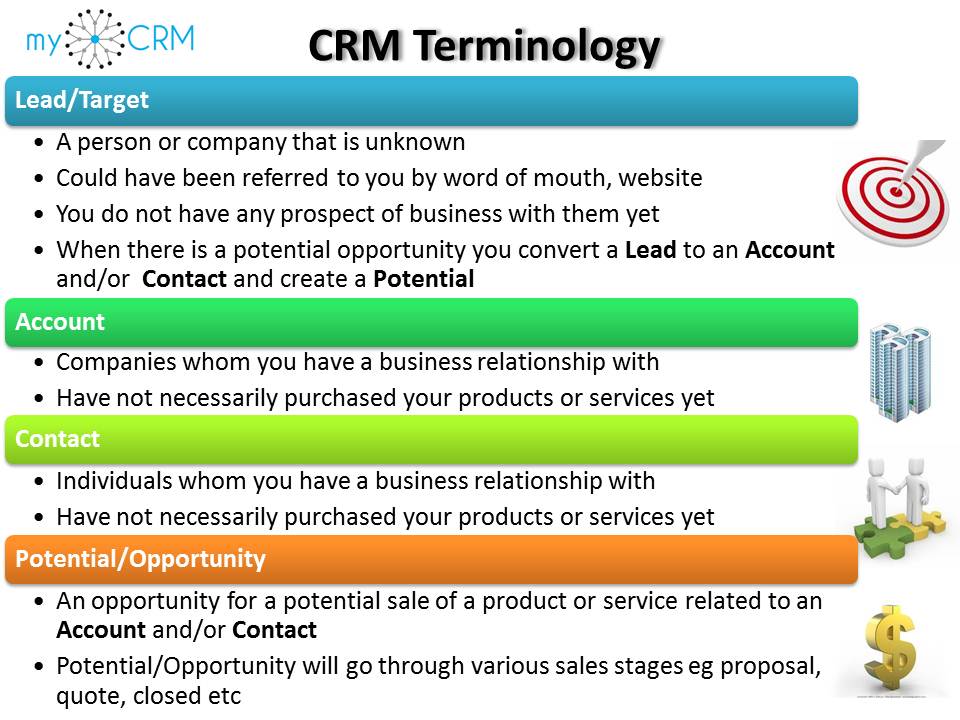CRM Terminology: Words That Don’t Mean What You Think
I’ve spent the past week exploring options for a Sales “Customer Relationship Management” (CRM) system for our company.
Welcome to a world where words don’t mean what you expect. A “Lead” isn’t really a lead, an “Account” isn’t really an account, and so on.
And different CRM systems use slightly different definitions for certain words, and each introduces slightly different terms to refer to something that’s mostly-but-not-quite the same.
Here’s quick list of key CRM concepts, most of which don’t mean what I expected: User, Employee, Role, Team, Group, Lead, Account, Contact, Opportunity, Target, Campaign, Case, Quote, Invoice, Contract, Document, Activity, Alerts, Calendar, Call, Meeting, Event, Task, Note, Attachment, Project, Template, Report, Workflow, Location, Product.
And here are some helpful web links providing some explanations of what some of these terms mean:
- “Understanding CRM Terminology” (Technology for Business $ake, BusinessTechnologyRadio.com)
- “Common CRM Terms and Concepts” (vtiger)
- “Glossary of Terms for Dynamics CRM 2011” (Microsoft)
- “The Marketer’s Ultimate Glossary of Salesforce Terms” (Jeffrey Russo, HubSpot Blogs)
- “The Difference Between a CRM Lead and an Opportunity” (Clemens Czarnecki, Pipeliner CRM Blog, Pipelinersales.com)
- “Key Concepts and Terminology: Microsoft Dynamics CRM Sales” (ManaSyst.com)
- “CRM Glossary: Demystifying your CRM” (1crm.com)
- “CRM Terminology” (SankyaConsultants.com) [source of the image below]
*/ This article is also posted on LinkedIn, at https://www.linkedin.com/pulse/crm-terminology-words-dont-mean-what-you-think-mark-welch
